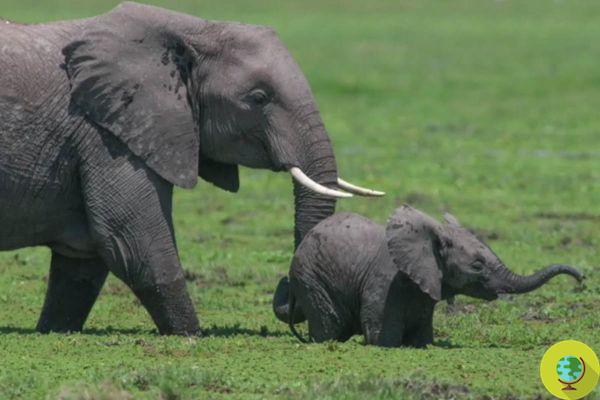
Lots of rains and, above all, the unusual absence of tourists due to the anti-Covid measures. Thus 140 baby elephants were born in Kenya.
Lots of rains and, above all, an almost unusual absence of tourists due to the anti-Covid measures. Thus in Kenya the vegetation has developed abundantly and not only: as many as 140 elephants have come to light.
A real record underlined on the occasion of World elephant day 2020 by Dr. Winnie Kiiru, a biologist of the Elephant Protection Initiative Foundation strongly committed to the fight against the illegal ivory trade.
World elephant day 2020: three facts about elephants you don't expect
We are in the Amboseli National Park (about 40 thousand hectares): 140 African elephant cubs (Loxodonta africana) were born here and gave new hope. It is in fact a species considered vulnerable and included in the Red List of the International Union for the Conservation of Nature (IUCN), due to poaching that has literally decimated its population.
from my colleague @KiiruWinnie, one of Africa's leading elephant experts in beautiful Amboseli #Kenya– wishing everyone a Happy World Elephant Day! https://t.co/YZxJ7oSNz5
— Barnaby Phillips (@BarnabyPhillips) August 12, 2020
As the BBC explains, Winnie Kiiru associated the new birth record with the containment measures dictated by the coronavirus, which led to the total collapse of tourism. Good for the elephants, who have thus been able to successfully carry out the pregnancies. In fact, gestation for pachyderms lasts about 20 months and most of the time the presence of man represents a significant disturbing factor that reduces the procreation rate.
In addition, the abundant rains have generated lush and nutritious vegetation.
"Elephants are everywhere, they are happy and they have space," says the scientist, however worried about the indigenous population. Without tourists, in fact, many Kenyan families do not have work and sustenance, so the hope is to find as soon as possible a balance that brings well-being to both animals and people.
The African elephant is among the species most threatened by poachers, but in recent times this phenomenon has been strongly contained in Kenya. In 1989 there were only 16 thousand elephants, today there are about 34 thousand. In 2020 "only" 7 pachyderms were killed by poachers in the country, compared to 34 in 2019 and 80 in 2018.
Source: BBC/EPI
Read also:
- Kenya towards the death penalty against poachers
- In memory of Daphne Sheldrick, the woman who saved orphaned elephants for life


























